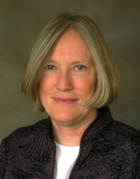Story C. Landis, Ph.D.
Skip secondary menu

|
Director, NINDS, Office Of The Director NIH/NINDS Building 31, Room 8A52 31 Center Dr MSC 2540 Bethesda, MD 20892 |
Dr. Landis has been Director of the NINDS since September 1, 2003. As the Director of the NINDS, Dr. Landis oversees an annual budget of $1.5 billion and a staff of more than 900 scientists, physician-scientists, and administrators. The Institute supports research by investigators in public and private institutions across the country, as well as by scientists working in its intramural laboratories and branches in Bethesda, Maryland. Since 1950, the Institute has been at the forefront of U.S. efforts in brain research, with studies in areas ranging from the structure and function of single brain cells to research on the causes, prevention, diagnosis and treatment of neurological disorders and, most recently, the translational research that is helping to bridge the gap. The Institute's mission is to reduce the burden of neurological disease - a burden borne by every age group, by every segment of society, by people all over the world. Dr. Landis joined the NINDS in 1995 as Scientific Director and worked with then-Institute Director Zach W. Hall, Ph.D., to coordinate and re-engineer the Institute's intramural research programs. Between 1999 and 2000, under the leadership of NINDS Director Gerald D. Fischbach, M.D., she led the movement, together with NIMH Scientific Director Robert Desimone, Ph.D., to bring some sense of unity and common purpose to 200 laboratories from eleven different NIH Institutes, all of which conduct leading edge clinical and basic neuroscience research. In 2007, Dr. Landis was named Chair of the NIH Stem Cell Task Force. A native of New England, Dr. Landis received her undergraduate degree in biology from Wellesley College in 1967 and her master's degree (1970) and her Ph.D. (1973) from Harvard University where she conducted research on cerebellar development in mice. After postdoctoral work at Harvard University studying transmitter plasticity in sympathetic neurons, she served on the faculty of the Harvard Medical School Department of Neurobiology. In 1985 she joined the faculty of Case Western Reserve University School of Medicine in Cleveland, Ohio, where she held many academic positions including Associate Professor of Pharmacology, Professor and Director of the Center on Neurosciences, and Chairman of the Department of Neurosciences, a department she was instrumental in establishing. Under her leadership, Case Western's neuroscience department achieved worldwide acclaim and a reputation for excellence. Throughout her research career, Dr. Landis has made many fundamental contributions to the understanding of developmental interactions required for synapse formation. She has garnered many honors and awards and is an elected fellow of the Academy of Arts and Sciences, the American Association for the Advancement of Science, and the American Neurological Association. In 2002, she was named the President-Elect of the Society for Neuroscience. |
| Date Last Modified Tuesday, December 16, 2008 |




